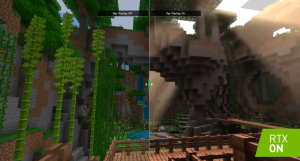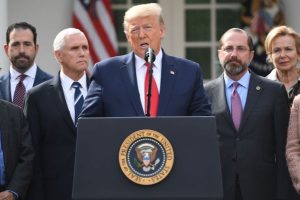Mucker Capital, the now eight-year-old, Santa Monica, Calif.-based pre-seed startup accelerator and venture outfit, has brought aboard Omar Hamoui, a partner at Sequoia Capital for the last six-plus years, as its third general partner.
Hamoui joins firm co-founders Erik Rannala and William Hsu, along with several other investors on the team who are collectively working to fund pre-seed, seed-stage and — with Hamoui’s help — Series A-stage deals in the LA region, as well as elsewhere in the U.S.
Mucker’s largest exit to date appears to be the LA-based shopping and rewards platform Honey, which was recently scooped up by PayPal for $4 billion in cash; Mucker was its first investor and the company went through its accelerator program. The firm also has stakes in ServiceTitan, NEXT Trucking, Emailage and AuditBoard, among others of its bets.
To find out more about Hamoui’s previously unreported move, we were in touch earlier today with Rannala to catch up a bit.
TC: When did you start talking with Omar? Did this move involve a recruiter? Is he moving to LA for the role?
ER: We’ve known Omar for several years. He had moved back to Southern California — he’s originally from here — and was covering LA and the surrounding areas for Sequoia. We got to know him better while collaborating on companies and he ended up leading rounds in two of our portfolio companies, NEXT Trucking and Papaya.
While we’d been historically more focused on pre-seed and seed, we had also been opportunistically investing in post-seed and early Series A rounds for some time. Somewhat serendipitously, Omar actually broached the topic with us independently. Given how well we were already working together, it made a lot of sense for him to join the team.
TC: How many funds have you raised to date? What sizes have they been?
ER: We’re currently investing out of our fourth seed fund [which closed last year]. We’d also raised a separate early-stage vehicle to invest in follow-on rounds for our pre-seed and seed investments and other post-seed and early Series A opportunities. In total, we raised a little less than $90 million last year.
TC: What will Omar be doing, specifically? How will the general partners divide up your coverage?
ER: Omar will be focused primarily on post-seed and early Series A investments, writing $2 million to $3 million checks. The three of us will collaborate across all our seed and early-stage investments, though Omar will be point person on post-seed, and Will and I will continue to focus on pre-seed and seed.
TC: You’ve been at this for a bit with Mucker Capital . What, if anything, has changed in the last year or two in terms of the LA scene?
ER: The LA ecosystem has been scaling and maturing rapidly since we started Mucker. The technical labor force here is roughly the same size as the Bay Area, so we’ve always had a wealth of talent. And the quality and sophistication of entrepreneurs and technical talent just keeps getting better and better as the ecosystem grows and evolves. We continually see more people relocating to LA, and downstream investors spending more time here.
The vast majority of follow-on funding here still comes from Bay Area firms, which isn’t a surprise considering so many firms are headquartered there, [so] overall, we believe LA is still underfunded relative to the size of the ecosystem and the opportunities here. That’s one of the reasons we’ve been expanding the scope of our post-seed and early-stage investing and bringing on a third partner to focus on it. As there are more exits like Honey, Snap and Oculus, we see more and more people recirculating back into the ecosystem, starting companies, angel investing and joining startups. [In the meantime], indigenous venture capital here in LA has lagged behind the growth in number and quality of opportunities that we see.
TC: You aren’t focused exclusively on LA, correct?
ER: Over the past couple of years, we’ve continued to expand the geographic scope of our investments — finding companies in places where Silicon Valley VCs haven’t really been investing, especially at the pre-seed and seed stage. Some of our recent investments are Modus in Seattle, GoFor in Ottawa, Resilia in New Orleans, Pei in Austin and Kast in San Diego.
TC: What company did Mucker miss, and what did you learn from the experience?
RN: One investment we passed on very early was Dollar Shave Club, and it’s certainly one we regret. We met Michael Dubin a few months after he launched the site and his original marketing video went viral. We obviously didn’t get it. Generic razor blades from Korea? Funny video? Pass!



